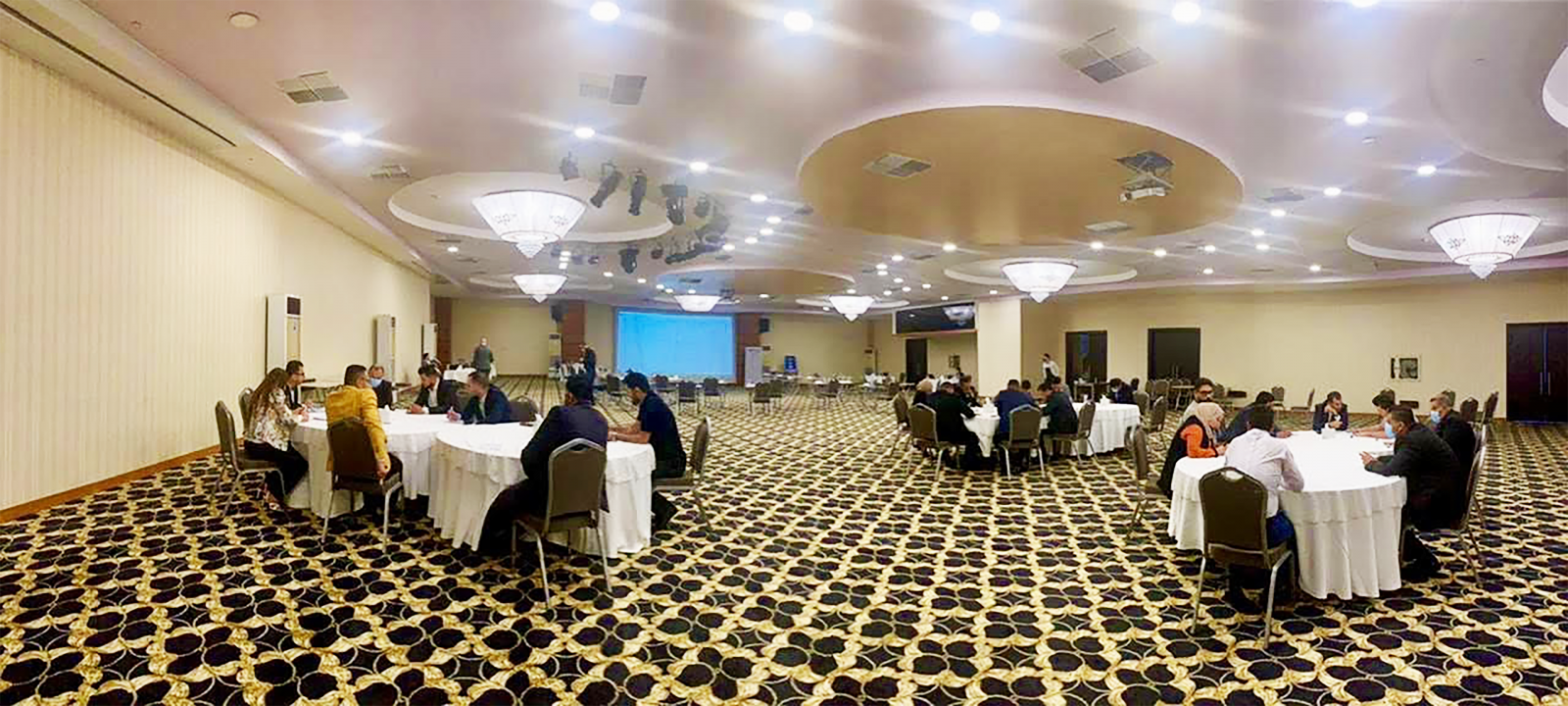
SHARE
Unemployment, lack of services, and a healthcare system at the brink of collapse are just some of the issues that Iraq is facing. With an unresponsive government being a catalyst for increased frustration among citizens, Members of Parliament (MPs) across Iraq’s provinces play a critical role in shifting public perception and demonstrating to their constituencies their ability to respond to citizen’s needs. To establish a level of transparency between MPs and their constituents, the National Democratic Institute (NDI or the Institute) has maintained operational support for the Constituency Outreach Offices (COOs) since 2011, which creates a space for citizens to channel their concerns to government officials from their province directly.
COOs are not a new concept to Iraq, however, due to lack of training and organization, many offices idly exist instead of playing a critical role in fulfilling some of the public’s demands and fostering relationships with constituents. MPs from various provinces, with assistance from NDI, have since aimed to relaunch and modify the offices to solicit citizen concerns and rebuild their provinces with a stronger foundation of trust. Alongside MPs, Constituency Outreach Assistants (COAs) have also played a critical role in demonstrating institutional availability to citizens.
This year, with assistance from NDI, MPs and their COAs have hosted more than 600 constituency outreach events, including listening tours, town halls, and site visits to IDP camps. These efforts have contributed to the modernization of COOs across Iraq, shifting them from unorganized, inefficient buildings to effective spaces where more than 19,000 citizens have visited to address their issues relating to lack of job opportunities, education, and basic services.
Despite the roadblock presented due to the looming health crisis, MPs and COAs effectively continued to maintain communication with their constituents and provide assistance with what minimal resources they had. By organizing nine online sessions, NDI created a space where COAs from different provinces can virtually gather and discuss the challenges they faced and learn methods of addressing constituents’ concerns during the pandemic. By providing training sessions on crisis communication skills during the lockdown, NDI helped COAs shift to connecting with citizens through developing an online presence. NDI also introduced COAs to a newly developed database collection system to ensure that all civil cases are organized and addressed efficiently.
“Before participating in the NDI program, I faced challenges in managing work in the constituency office, including managing citizens' demands and appeasing their anger and frustration,” said a COA from Ninewa. “During the trainings, we learn practical tools on dealing with citizens and restoring trust with them. For example, with the COVID-19, we learned from the different examples shared in the sessions how to remain available to citizens, how to use their concerns in thinking, and develop sustainable solutions to the deficiencies and weaknesses of our governance system that the health crisis exposed.”
Through establishing a stronger social media presence and introducing the improved database collection system, COAs were able to organize efficiently and maintain strong communication with their constituents.
“We solved many issues during the health crisis,” said a COA from Baghdad. “But more importantly, we proved to our constituents that we are always present for them and we always listen to their demands.”
COAs and MPs also took to the streets and conducted tour visits to educate the public on methods of protecting themselves from the virus, including distributing masks, hand sanitizers, and health baskets.
“Our COO during the lockdown played a meaningful role in providing support to constituents mainly by coordinating by CSOs and providing goods and basic needs to citizens.”
COVID-19 not only challenged Iraq’s healthcare system but also exacerbated the already devastating unemployment crisis. MPs from Ninewa highlighted that their office receives more than 400 cases on a daily basis about unemployment in the province. To effectively organize the cases, the constituency office utilized NDI’s questionnaire to develop a form for distribution and gather tangible evidence for a large number of unemployment cases. Ninewa’s MP later shared her findings with Prime Minister Mustafa al-Kadhimi and aims to continue to work on addressing the nationwide issue.
“The main challenge we face in the constituency is that people think that the MP has the magic wand and can solve all their problems,” said a COA from Ninewa. “People are disappointed by politicians and we are blamed by citizens for not responding to their demands. It’s not easy to explain the roles and responsibilities of the MP.”
As the October parliamentary elections near, the constant development of the COOs helps citizens determine the effectiveness of their MPs. And as institutions in Iraq continue to crumble, the role that COOs play has become critical now more than ever. Constituency offices play a mediating role between citizens and government officials, helping rebuild the trust that’s been lost in politicians. In the lead up to and following the election, NDI will continue to provide assistance and training to MPs and their COAs to ensure that the constituency offices maintain operations in the most efficient and effective way.
This program is implemented with funding from the U.S. Department of State’s Bureau of Democracy, Human Rights, and Labor.
Author: Maryam Alhassani is a Program Associate with the MENA Team at NDI.
NDI is a non-profit, non-partisan, non-governmental organization that works in partnership around the world to strengthen and safeguard democratic institutions, processes, norms and values to secure a better quality of life for all. NDI envisions a world where democracy and freedom prevail, with dignity for all.



